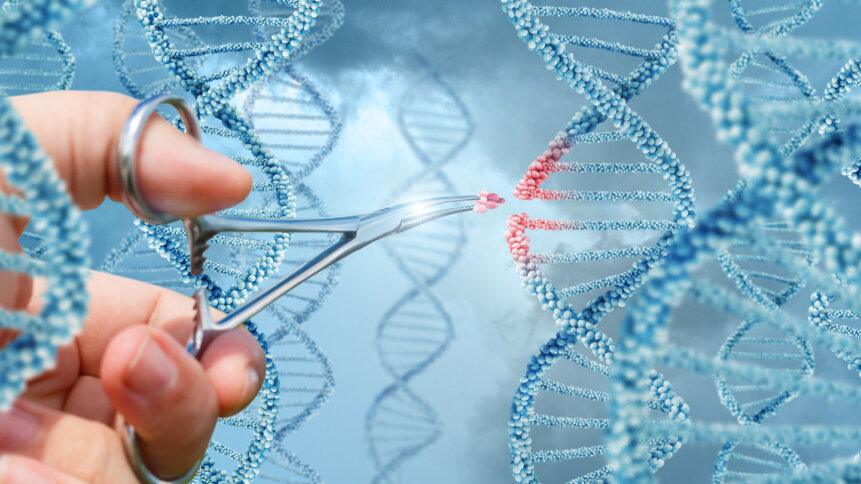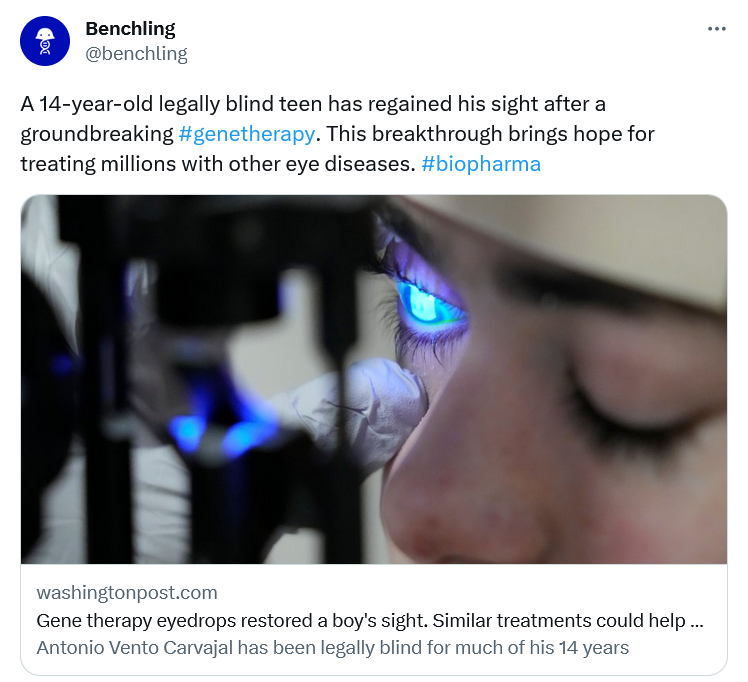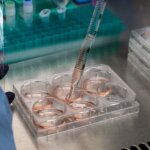Why bioscience desperately needs technological development

• Technological development in life sciences is vital to unlock the power of the science.
• Historically, technological levels in the life sciences has been primitive.
• With better collaborative technology, scientists could cut years off treatment development.
Bioscience and biotech are some of the most genuinely mind-boggling and potentially life-changing industries it’s possible to be in right now. So much so that the UK Government has determined to make the country, as well as a cyber-superpower through projects like the Cyber Runway, a “life sciences superpower” into the bargain – which is to say a biotech superpower.
But it turns out there’s an issue in getting from A-B in terms of such superpower status. Before you can turbo-charge the development of biotech and bioscience, you actually need to invest significantly in modern technological development to empower your biotech growth.
We sat down with Bob Burke, EMEA GM at biotech cloud platform Benchling and Jason C. Foster, CEO of cell and gene therapy manufacturing technology company Ori Biotech, both of whom are advocating for a pathway based on technological development, to find out why the expansion of biotech could be great news for trad-tech too.
THQ:
So, the UK government has set the industry a goal of turning post-Brexit Britain into a life sciences superpower. And it’s said it’s investing £650 million to achieve that.
That’s nowhere near enough money, is it?
JCF:
Ouch. Starting off with the softballs, right?
BB:
The thing is, the reality of the overall amount of funding that has been going into the R&D space in the UK in the world of the life sciences over the past 10 years is that it’s down 20% from where it was a decade ago.
So, as far as we’re concerned, any amount of investment is positive. And the hope, of course, is that if the government takes the lead and starts putting money into the sector, then private investment will follow. So, it’s positive news that we’re moving in that direction.
Added to that, pension funds are going to be allowed to put up to 5% of their assets under management into alternatives, which means private equity and venture capital. That’s a great start. Sure, it’s been a long time coming, but that 5% represents £75 billion of new funding that will go into the innovation ecosystem. So those are positive steps forward.
THQ:
So it’s a starter fund, rather than, say, a college fund?
JCF:
Yeah, I think so. It’s a good first step, and I don’t think the government said that that’s all it’ll put in, ever. This is where we start, and hopefully the ecosystem builds around it. And to Bob’s point, often following public capital is private capital, which we need more of in the ecosystem as well. So it will definitely help to prime the pump for the next generation of innovative companies coming out of the UK.
Why we need technological development.
THQ:
You’re both advocating for a significant amount of technological development to empower biotech and bioscience.
Hit us with the logic. Why do we need a highly developed technology culture in order to build a highly developed science culture?

Curing the sick and healing the blind. Sounds vaguely familiar…
BB:
The thing that is really important to understand about this is that the level of technology that’s been invested in the world of science, historically, has been woefully low. The reality is that the tools and the technology that sit beside the level of innovation that’s happening from a scientific perspective are woefully out of balance.
THQ:
So we’re not just getting ChatGPT and telling it to cure bowel cancer or the like?
BB:
Ha. Before we can start thinking about how organizations can really start unlocking the potential of something like AI or machine learning, there are a lot of fundamentals that they’ve got to start getting right, which historically, they haven’t done a great job of.
If you think about the way that scientists in a laboratory have gone about their jobs over the past 10, 20, 30 years, it’s often been with a pencil and a piece of paper.
That means the data they’re collecting has historically been incredibly siloed.
THQ:
It is difficult to think of a more siloed database than a scientifically notated Post-It note, to be sure.

Note to self: cure horrible diseases.
BB:
They can’t collaborate on their data, or share that data, or even gather all the data together, let alone gain any meaningful insights from it. So, establishing a baseline platform of data and having clear datasets across an organization is really key. Also, having it in a structured form that then sits in a logical database that you can unleash some AI and machine learning on is critical.
Those are all things that historically have not happened in the world of research and development. Those are the sort of challenges we’re facing here.
Technological development to at least business standard.
THQ:
So when you say we need to invest in technological development, that’s not some super-duper hyper-tech demand, that’s to get scientific research for the most part up to the level that multinational companies use as routine, day in and day out?
BB:
Yep. We’d call it delivering modern software for modern science with a true scientific cloud environment. That would be 100% cloud-based, helping organizations overcome these historic challenges.
JCF:
I can give you an example of the difference that would make if you like.
THQ:
Please – we’re all about the cogent examples.
JCF:
At Ori, we work in cell and gene therapy, which is a whole new modality that’s bringing cures for cancer and rare diseases to patients. So, it’s an incredibly important and interesting area to work in.
But we’re having major access problems. That means effectively, we have cures for cancers that patients can’t get access to, because they can’t be made, they can’t be manufactured, they’re too expensive. And a lot of that comes back to the processes that we start with in the lab when we develop these products.
THQ:
We’re sorry. You have cures for what-now?
JCF:
It’s often on paper, as Bob said. We can’t learn as quickly as we otherwise might about what works, what doesn’t work, we can’t get products into clinical trials fast enough, we can’t get them to the patients fast enough.
We think if we had a fully digital system from research all the way through the clinical process, we could shave three years off the drug development timeline for a new cell therapy.

What would YOU do to get the cure for what was killing you 30% faster?
So, something that now takes maybe 10 or even 12 years to reach patients could do so in 30% less time. So that’s a very obvious use case for us to say there’s a massive benefit to going digital and using these data from the very beginning, rather than working in paper batch records or lab notebooks, which is where much of the industry still is.
And advanced therapies is one of the cornerstones of the industrial strategy for the UK, so this is a major area of focus for us.
But we’re still working as we have done for the last 50 years. So part of the answer is that we have new science that requires new tools and new infrastructure to underpin it. That demands significant technological development to help the science serve the people.
THQ:
Right. You understand we’ll be coming back to that whole “We have cures for cancer that people can’t get access to” thing… right?

Bob Burke and Jason C Foster.
In Part 2 of this article, you’d better believe we’ll come back to that whole cures for cancer thing, but we’ll also dig deeper into the kind of technological development that could unlock the true speed of biotech and bioscience.










